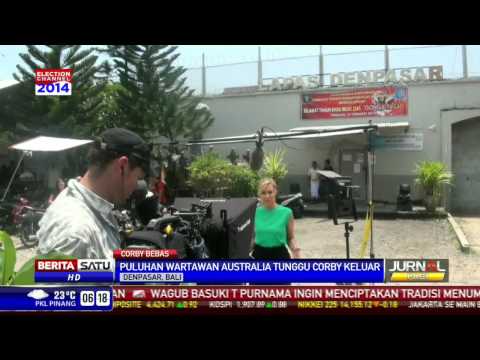Australia: I’m Just Not that Into You
In between natural disasters, an upcoming Presidential election and various other domestic problems, Indonesia remains firmly focused on itself, writes AIYA Victoria member Tim Flicker.
The Australia-Indonesia relationship could easily be the storyline to a bad break-up. It is not that Indonesia is not concerned with the relationship with their closest neighbour. Rather, a plethora of various domestic problems has left Indonesia little time to focus on the bilateral relationship between the two countries.
In Australia in recent weeks, the words on everyone’s lips have been “Schapelle Corby” as the story has become a national obsession. The Australian woman, convicted of drug trafficking, was recently granted parole from Kerobokan Prison in Bali. It seems that everyone in Australia has an opinion on whether Corby was justly convicted or not. On Sunday 9 February, Channel Nine aired their documentary series entitled Schapelle, and there has been widespread controversy over the media’s scramble to interview Corby and whether a convicted drug offender should be allowed to profit after her release.
What may come as a shock to many Australians is that the controversy has barely rated a mention for the people of Bali. Professor Dr I Nyoman Darma Putra recently gave an interview on SBS Radio Indonesia stating, “there has been no special reaction from the Balinese community.” (“Secara umum tidak ada reaksi istimewa dari masyarakat Bali.”) From the Balinese perspective, the Corby case is instead an example of the importance of adhering to local law and acts as a warning to young adolescents of the dangers of being involved with narcotics. Indonesian society is generally supportive of harsh drug sentences for drug convicts, regardless of whether the perpetrator is a foreigner or local.
But this is not the first time that a cross-border issue has received far more media attention in Australia than it has from our closest neighbour. The issue of asylum seekers and people smuggling does not receive nearly as much media and public interest in Indonesia as it does here in Australia. The vast majority of refugees residing in Indonesia are seeking settlement in Australia. We should therefore not be surprised that many Indonesians view the issue of asylum seekers and people smuggling as an issue for Australia.
By contrast, an event that has hardly received any media coverage in Australia was the recent eruption of Mount Kelud in East Java. The eruption shrouded entire cities in Java with a layer of volcanic ash, displacing many families from their homes and posing a major health threat to residents. Furthermore, the floodings in Jakarta earlier this year highlight the problems that exist within Indonesia, a country that is highly prone to natural disasters, as it lies in a geologically active part of the world.
These natural disasters coupled with a fast approaching April general election, and Indonesia’s own domestic problems including food and water shortages, corruption and an array of other issues, sees Indonesia with a lot on its plate. However, with very little Australian media insight into the domestic issues facing Indonesian society, it is little wonder that Australians are unaware of these major challenges confronting Indonesia.
It is time for Australians to realise if we want a more mature relationship with Indonesia, we are not the centre of Indonesia’s universe and the country has its own problems. Perhaps we should heed the advice of Indonesian Foreign Affairs Minister Marty Natalagawa, who recently said “There are other things in life, kecuali (except) Australia”. Only then can the relationship evolve and become one of mutual respect! Without a more respectful approach the relationship between Australia and Indonesia is in danger of drifting apart.
Do you agree? Leave your thoughts in the comments below.
AIYA welcomes article submissions from our readers. Interested in writing for us? Let us know! The opinions expressed in this article are the author’s own and do not necessarily reflect the views of the Australia-Indonesia Youth Association or its partners.


